
"The PS to the minister conveys the instructions of the minister to an officer of the department to process the notes, and this is considered correct, owing to the lack of means to verify the same," Srivastava, a witness in the 2G spectrum case, told the CBI.
Witnesses, including former DoT officials, former Telecom Regulatory Authority of India chairman Nripendra Misra and former finance secretary and current Reserve bank of India Governor D Subbarao, have, in their accounts to the CBI, pointed at several lapses in the processes towards the issuance of 2G licences in 2008, despite resistance from several quarters.
...
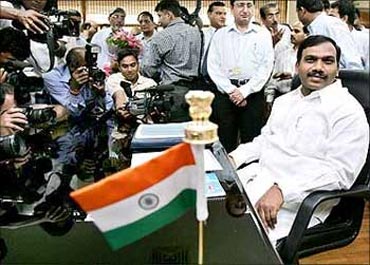
The almost 500-page CBI special court order on the framing of charges in connection with the 2G spectrum allocation case contains the details of how A Raja, the then telecom minister, along with Siddharth Behura, the then DoT secretary, and R K Chandolia, Raja's personal secretary, ignored and over-ruled any advice that went against their purpose. While Raja is yet to file his bail petition, CBI is opposing the bail pleas of Behura and Chandolia.
Srivastava elaborated on how the process of granting letters of intent for 2G licences was rushed through to favour some companies.
The document also talks about the press release on the LoIs, approved by the then solicitor general and current attorney general, G E Vahanvati, was edited by senior DoT officials.
When confronted with the revised press release later, Vahanwati said: "I have to state that, to the best of my recollection, this was never shown to me."
Raja has, however, disputed Vahanvati's statement to the CBI that he had forged changes in a press statement after getting it cleared by Vahanvati.
The amended press note was allegedly used by Raja to arbitrarily change the eligibility criteria for the allocation of 2G spectrum in order to favour select telecom companies.
...
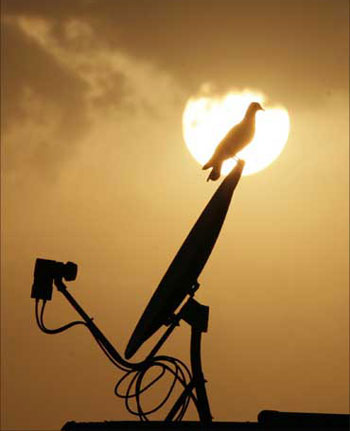
The sequence of events, according to witnesses, was: When the file on LoIs was sent to Vahanvati, he approved it, saying: "The press release makes for transparency. This seems to be in order."
The file was then sent back to Behura on Jaunary 7, 2008.
T Srivastava was then called by Behura in his chamber on January 10, 2008, given a photocopy of the press release "as amended by the minister (Raja)," and was told to issue it immediately.
Behura made a note on the file that the amended press release had been issued. Srivastava told the CBI that the amendment involved the deletion of the last paragraph in the press release.
The deleted paragraph said: "However, if more than one applicant complies with the LoI condition on the same date, the inter-se seniority would be decided by the date of application".
DoT officials were in such a hurry that by the time Srivastava reached his office, he found individual files of applicant companies had been received.
While he was discussing the modality for issues of LOIs with DoT Director Nitin Jain, R K Chandolia came to Srivastava's chamber.
"This is unprecedented," Srivastava noted. If required, Chandolia usually summoned DoT officers to his chamber.
...
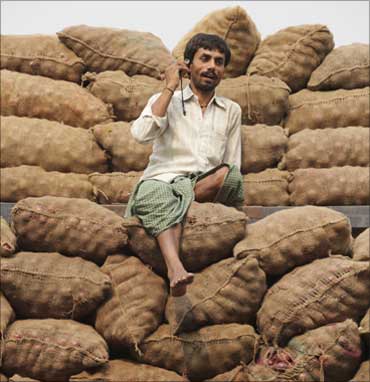
Not just this. Chandolia insisted the LOIs be issued on January 10, 2008, (that very day) by opening four counters, as desired by the minister.
Chandolia already had the scheme of the counters on a piece of paper in his hand.
"When we raised apprehension that the time was too short for calling the applicant companies, he suggested that we should inform them telephonically, and that a press release be brought out in this regard," Srivastava said.
On further resistance to such a move, Behura said one should go with what Chandolia was suggesting, since "the minister had wished that the LOIs be issued the same day."
According to the press release, all the applicant companies who submitted their applications to the DoT for the grant of unified access service licences in various service areas, on or before September 25, 2007, or those who had applied for usage of dual technology spectrum were requested to depute their representative to collect their responses on January 10, 2008 (that day) at 3.30 pm from Sanchar Bhavan, New Delhi.
Another DoT official at that time, Nitin Jain, in his witness account, had said on January 9, 2008, the finance branch examined a 2G file and said: "The details of Tiger Traders Pvt Ltd, one of promoters of Swan Telecom, as on the date of application is not submitted. It may be mentioned that there were allegations of non compliance of the substantial equity clause."
...
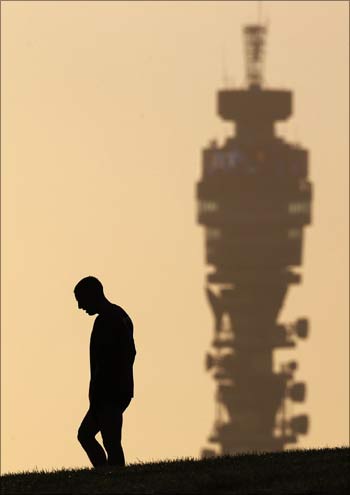
The matter was submitted to the member (finance), who in turn marked the file to the minister through the telecom secretary.
The same day, Behura cleared the proposal and sent the file to the minister, who approved the LOIs on January 9, 2008.
Another witness, R K Agarwal, a DoT official under Raja, said: "There was intense pressure from the minister to put up the Delhi Circle file in favour of Swan immediately."
While the secretary was reminded daily, "Chandolia was after me and checking on an hourly basis on the progress made," Agarwal told the CBI.
The then finance secretary and current RBI Governor, D Subbarao, had raised the issue of spectrum pricing with D S Mathur, the telecom secretary before Behura, in a letter dated November 22, 2007.
Subbarao, a witness in the case, questioned the basis on which spectrum licence in 2007 was being given at a price determined in 2001.
"In particular, it is not clear how the rate of Rs 1,600 crore (Rs 16 billion), determined as far back as in 2001, has been applied for a licence given in 2007 without any indexation, let alone current valuation."
Subbarao not only asked the DoT to review the matter, but also to stay any further action on the implementation of the spectrum licences, demanding that the DoT furnish the finance ministry with all the letters of permission given.
...
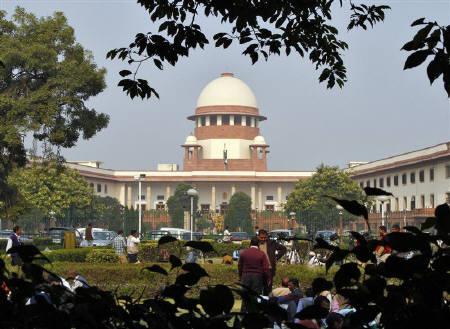
A week after Subbarao's letter, Manju Madhavan, member (finance) at the DoT, wrote in a note: "Since the rates have not been revised, and the finance secretary has raised the issue, I am of the view that this issue should be examined in depth, before any further steps are taken in this matter.
Another prosecution witness in the 2G case, former Trai chairman Nripendra Misra, told the CBI he had written to D S Mathur on November 14, 2006, saying: "Before awarding a licence to a new service provider, the licensor (the government) shall seek the time-bound recommendation from the authority."
Later, during Siddhartha Behura's tenure as telecom secretary, Misra had reiterated the same point in a letter on April 24, 2008.
He wrote: "The views of Trai should be obtained before awarding the licence to a new service provider, or amending the terms and conditions of the licence."
To this, Behura had replied that "no useful purpose would be served by engaging in any further discussion with Trai on the subject".